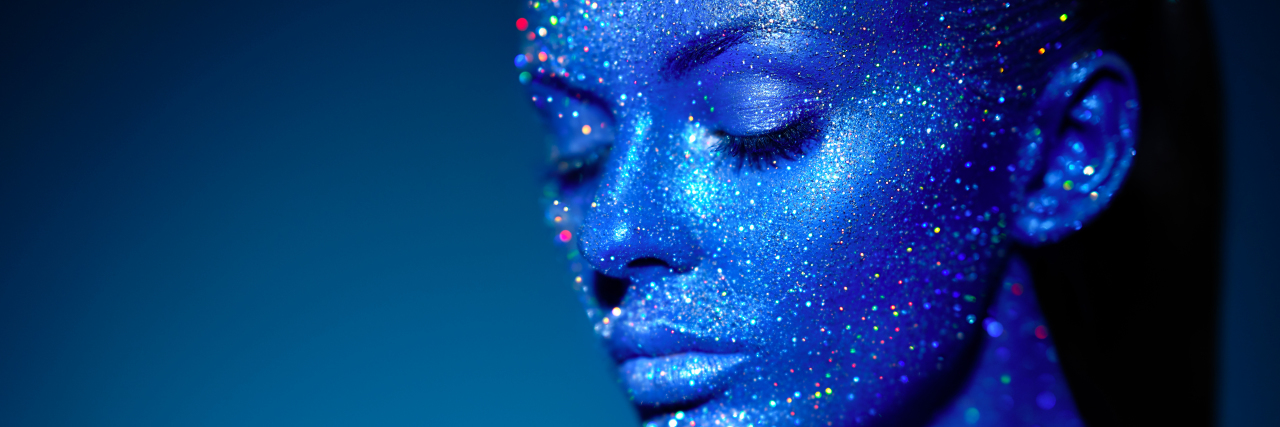I want to raise awareness as an autistic woman with a neurodiversity approach, as well as challenge some myths.
1. Autism is a neurobiological difference, not an illness.
2. Autistic people possess a difference in communication and processing, which can make communication with others who are not autistic challenging.
3. Some people have alexithymia, which can make it difficult for the person to recognize emotions in themselves and in others. This does not mean the person lacks empathy; in fact, some of us possess hyper-empathy and feel for others very deeply.
5. Not all of us are good at math, collect things or have obscure interests. In fact, autistic women are more likely to be interested in topics that neurotypical women are, making it difficult to tell us apart on the surface.
6. Some of us can and do make eye contact. I personally do not like doing so, but can do it as part of the mask I adopt to blend in.
7. Not all autistic people have a genius IQ or severe learning disabilities. We are just as different as everyone else.
8. We’re not antisocial. Just like everyone else, some of us are introverted and some extroverted.
9. Due to issues with sensory processing, we may experience extreme overwhelm, by way of shutdown or meltdown. It’s a bit like a computer crashing from too many requests. A meltdown is not a tantrum and has nothing to do with wanting attention — quite the opposite. We need patience, compassion and removal from the source of distress.
10. You cannot force us to process and communicate information the way you do. We understand that you do things differently and we are doing our best to adapt. Please be as clear, methodical and direct as you can be with us.
11. Women seem to be more likely to camouflage their autistic traits, leading to physical/mental health issues and burnout. Burnout is serious, and we are so used to hiding behind a mask that you won’t see how severe it is.
12. Please do not patronize us with the assumption that we are struggling intellectually. We may struggle with things you find easy, but may also be very good at things you find incredibly difficult. Many of us are at the top of our fields, even in subjective areas such as psychology.
13. No one is a little bit autistic. We’re all on the human spectrum, not all on the autistic spectrum. You either are or you aren’t. Saying this trivializes the challenges we face.
14. Autism is not caused by vaccines. This myth has been disproven and is also very offensive.
15. Many autistic people find the labels high and low functioning as well as mild and severe to be inaccurate. One, it may suggest the notion that autism is an undesirable illness and two, it can minimize the struggles of those of us who camouflage our traits. The variation in our individual environments and personality traits will affect our ability to manage daily life in different ways. Some people may also have learning disabilities and conditions that impact how they manage.
16. You can’t tell if someone is autistic by looking at them.
17. Autistic people can be a jerk as much as anyone else can. We are just as imperfect as you are.
18. There is no cure, because it’s not an illness.
19. We might be slow to get abstract jokes, but we have a sense of humor. Some of us are comedians.
20. As is commonly cited: If you’ve met one autistic person, you’ve met one autistic person.
Despite what I believe is outdated literature out there, I don’t see autism as a disability in the same way others may interpret. My personal experience is that I feel like I’m operating on Linux, whilst the majority are on Windows and it is the discrepancy that causes me distress and disempowerment.
The way we categorize people with differing neurobiology as disordered should be reevaluated in my opinion. The medical model of disability focuses on the person with the diagnosis as disabled and needing professional help, whereas the social model places emphasis on the person being disabled by the environment. The latter model, to me, is most helpful.
If society accepts our differences and embraces our strengths, many of the barriers we face on a daily basis would be reduced.
Getty image by Heckmannoleg.

